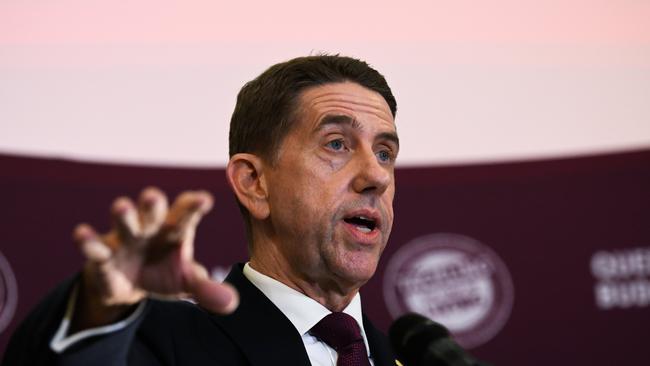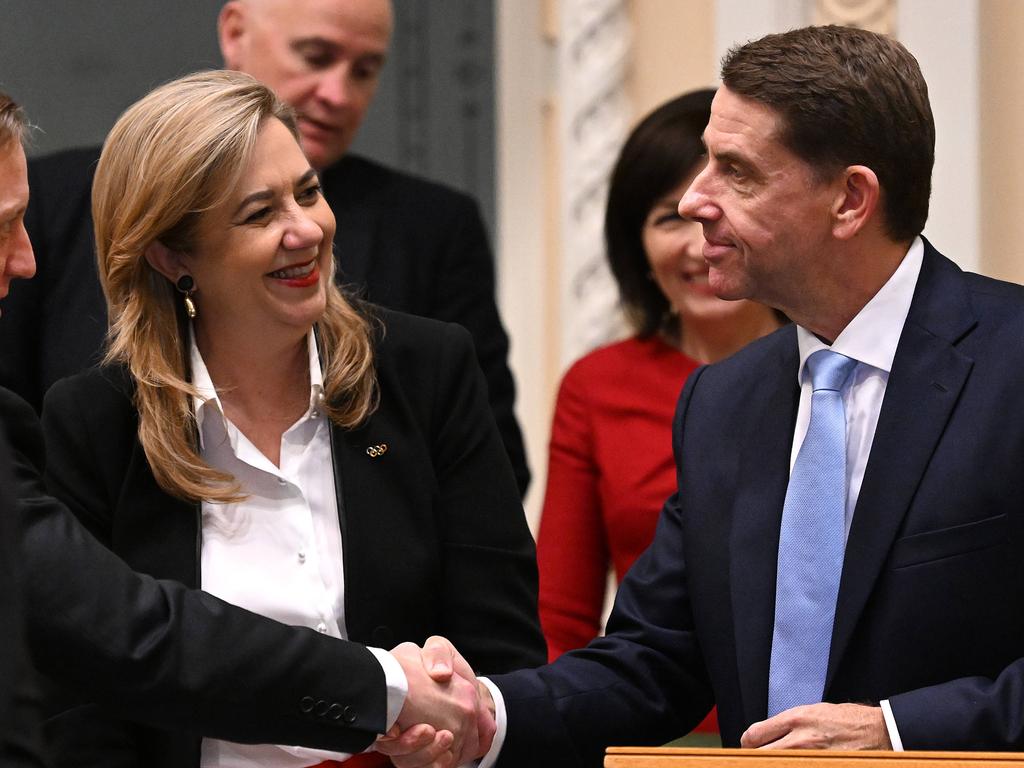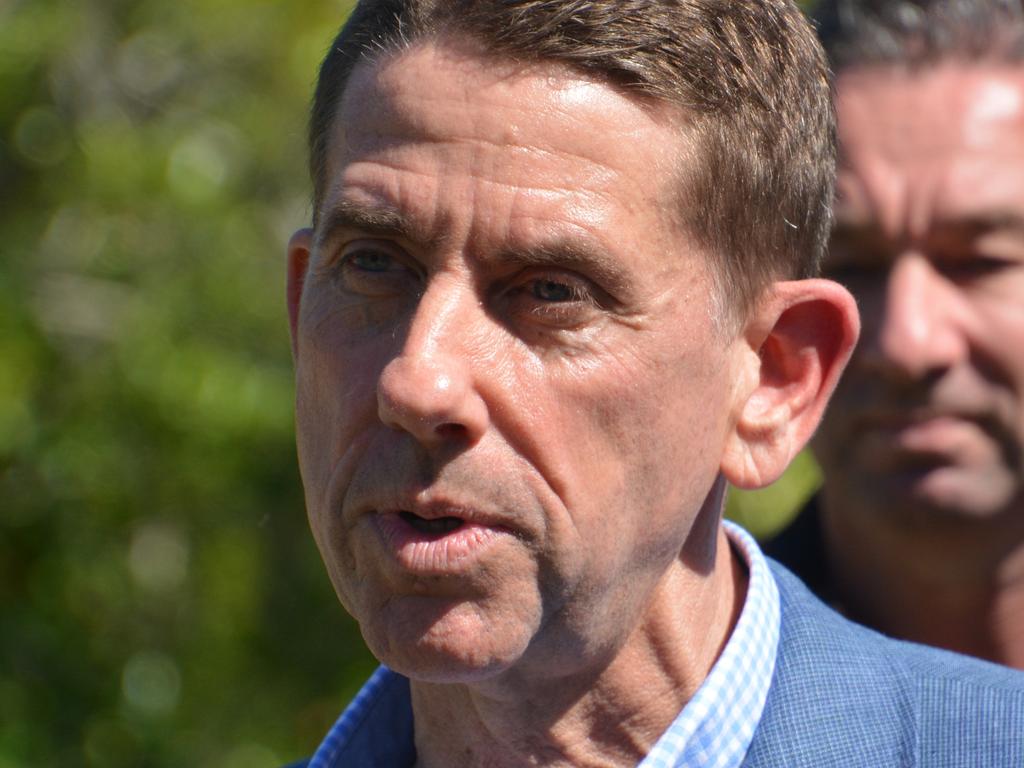QLD unions squeeze $2bn in pay rises, inflation bonuses from government
The powerful unions squeezed the government for higher wages and bonuses, pushing the bill for the bureaucracy past $32bn.

Queensland’s powerful unions squeezed nearly $2bn extra from the government in higher wages and inflation bonuses for public servants in the past year, pushing the bill for the bureaucracy past $32bn.
In the past 12 months, nurses, teachers and police officers all secured new three-year employment deals for wage increases of 4 per cent for each of the first two years and 3 per cent in the third year, well above the government’s old 2.5 per cent wage policy.
Unions also negotiated a one-off “cost-of-living” bonus for public servants, tied to inflation.
In 2023-24, employee expenses will rise to $32.18bn – $1.9bn, or 6.3 per cent, higher than the estimated actual cost in 2022-23.
Public service wages are by far the biggest single cost to the state budget, accounting for 38.2 per cent of the overall $84.3bn expenses bill.
By 2026-27, the cost of the bureaucracy is forecast to hit $34.9bn, not including superannuation.
In the Palaszczuk government’s first budget, handed down in mid-2015 by then treasurer Curtis Pitt, employee expenses were $19.9bn, or 39.9 per cent of the government’s $49.97bn expenses bill.
The number of full-time equivalent workers employed by the government has soared past 250,000, and is now forecast to hit 256,020 by mid-next year.
By that time, the Palaszczuk government will have expanded the size of the public service by nearly 50,000 FTEs since it was elected in January 2015.
While the government insists it is focused on “revitalising frontline service delivery” – after the one-term Newman Liberal National Party government slashed the public service by 14,000 FTE jobs – 22,031 FTEs are currently in corporate service roles, an increase of 1692 in a year.
As of March, 91.1 per cent of public servants were employed in frontline or frontline support jobs.
Queensland Treasurer Cameron Dick said the unions had driven a hard bargain during the wage negotiations.
“Obviously we’ve got significant enterprise bargaining agreements, which is very important, particularly in an age when we need skilled workers,” Mr Dick said.
“We’ve got to retain and attract those skilled workers to the public sector. So (the $1.9bn increase in employee expenses) is a result of ensuring we look after our frontline.
“We fund our frontline through appropriate enterprise bargaining agreements, which we negotiate, sometimes in hard-fought fashion with unions, and then we of course attract more staff, as we have to for a growing state.”
An extra 4666 FTEs are forecast to be hired in 2023-34, and 8698 were employed this financial year.
The government is also trying to recruit health workers and doctors from interstate and overseas with bonuses of up to $70,000 to move and work in the public sector, particularly in rural and remote areas. It follows a similar poaching project for teachers from interstate and New Zealand.
Treasury forecasts, included in the budget, suggest the government will not have to pay another inflation bonus to public sector workers as part of the current three-year wage deal.
Fine print in the budget papers warns that a further one-percentage-point increase in wage rates above expectations would increase the salary bill by about $322m each year.
Seven more public sector agreements are due to expire before the end of the year, including for Parliamentary Service electorate officers and youth detention centre workers.








To join the conversation, please log in. Don't have an account? Register
Join the conversation, you are commenting as Logout